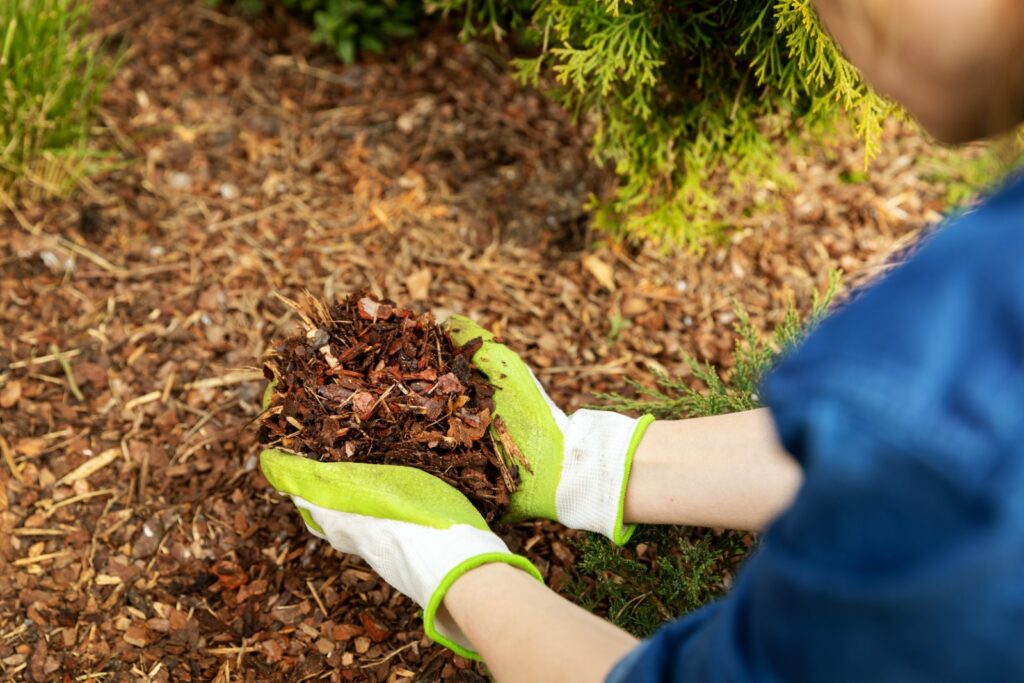
Simple techniques limit the tedious task of weeding, or even allow you not to have to weed at all. There are many alternatives to the use of old chemical weedkillers.
Non-cultivated surfaces: paths, yards and terraces
Roofs, facades, stones, gates, barriers, unpainted wooden outdoor furniture. When exposed to the north or west, these surfaces are often invaded by moss, green or red algae or lichen. There are new products that are based on 100% natural active ingredients that act by contact, the effects are visible in a few hours.
Concerning driveways, a first remark of common sense: if your driveway is used regularly and has an appropriate width, “unwanted weeds” will not grow there! If it is not, ask yourself what purpose it serves.
To keep walkways clean, you can use pine bark, wood chips, or mineral mulch spread on a suitable fabric to prevent the material from sinking into the soil and to allow for proper drainage. Another solution: why not opt for grassed paths, mowed regularly?
Don’t forget the “Japanese steps” made of flat stones that trace a path in your garden: no maintenance.
For some driveway pavements, good way to avoid having to weed them is to let the grass grow on them! This is possible with honeycomb paving that allows the grass to take root while ensuring good bearing capacity for vehicles.

Cultivated areas: vegetable garden, orchard, ornamental beds
Good soil maintenance habits
Digging or tilling brings to the surface the seeds of weeds stored in the ground and only multiplies them. By cutting the roots, you contribute to their spreading. That is why we recommend using a spade fork that will loosen the ground and allows you to easily remove the entire weed (with its root) by hand or with the help of a hook.
Covering the soil so that it is never left exposed: Mulch
Mulch act as a protective screen against light, thus preventing the growth of weeds by blocking the sun’s rays for photosynthesis. In addition to their anti-weed effect, mulch they have multiple virtues: reduction of watering, fertilising effects for the soil, protection against erosion, prevention of many diseases, repellent effect against slugs, and decorative. Different types of mulch exist from straw, wood bark, synthetic mulch, wood chipping, expanded clay, and more.
Mulch is also an effective way to avoid weeding when planting a hedge, but also in the vegetable garden, in autumn and winter, to cover the spaces without vegetables.
